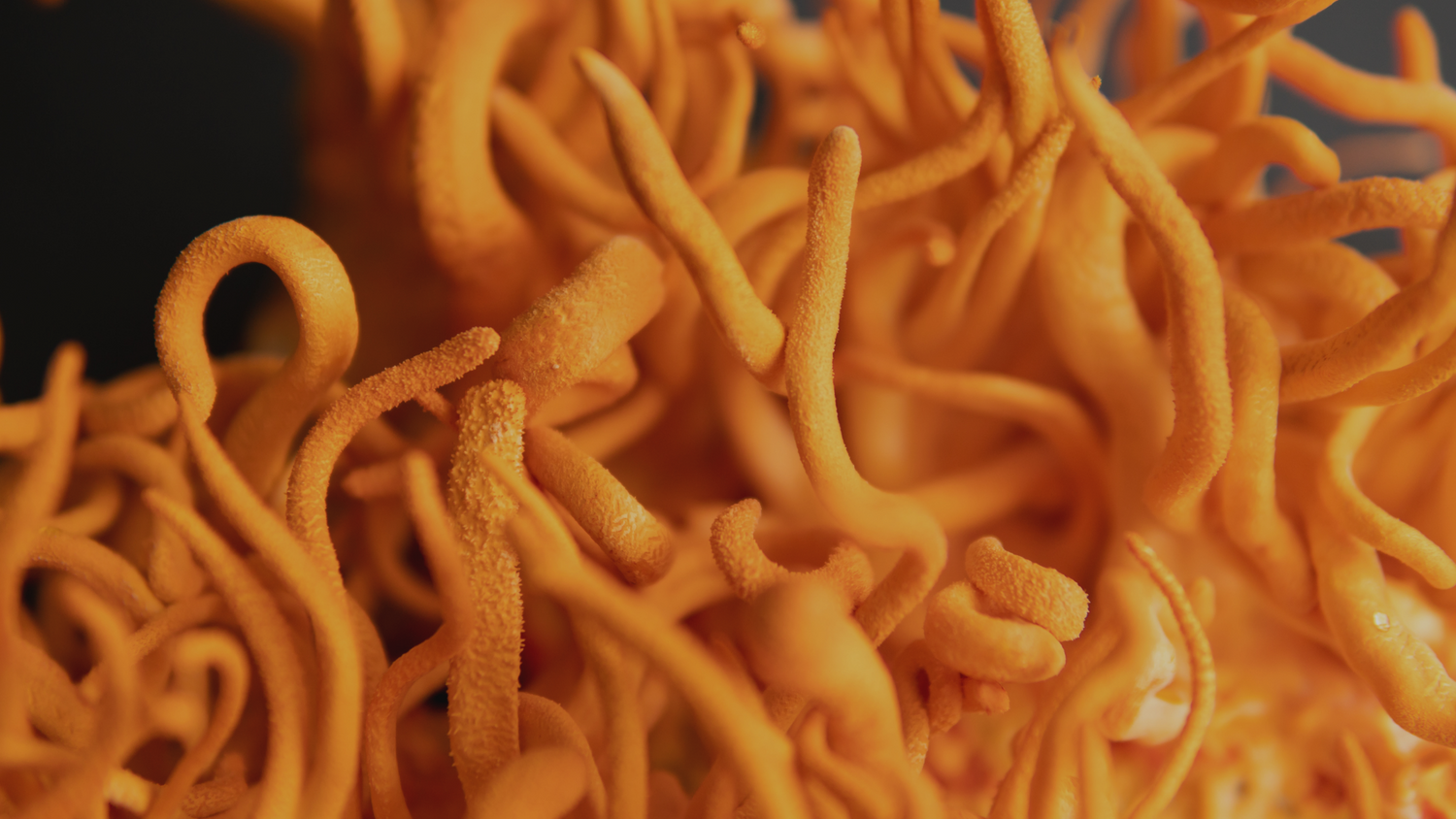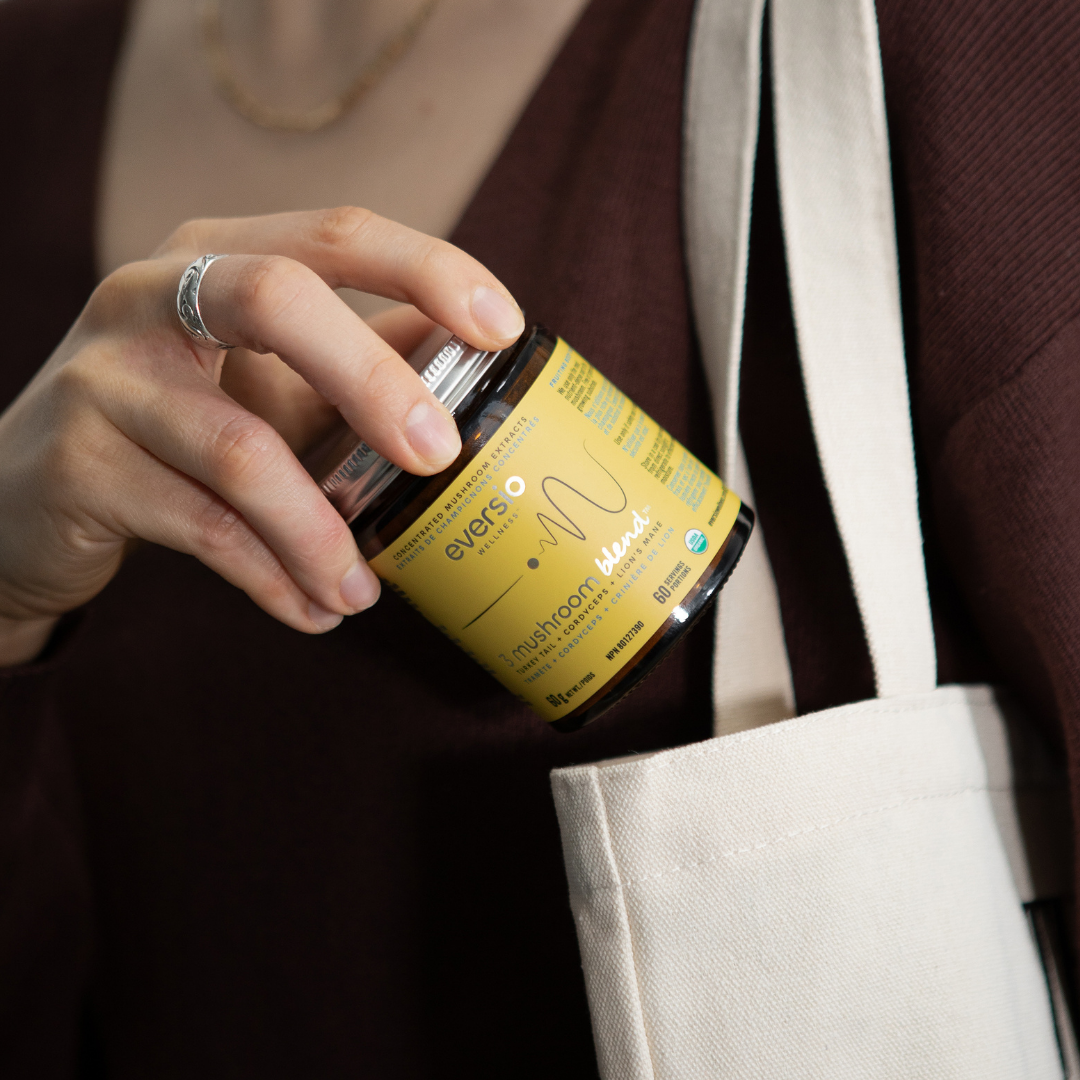According to traditional Chinese medicine theory, Cordyceps can soothe the lungs, stop bleeding, eliminate phlegm, and most importantly it can replenish the kidneys.1 When originally learning about Cordyceps from a Western medicine perspective I was only aware of its effects on immune health, reproductive function, and for its antioxidant activity.1 So, to my surprise, when I heard it had an effect on the kidneys I was quite intrigued. For instance, many of the medications used to treat kidney disorders like Cyclosporine and Mycophenolate (MMF) originally came from mushrooms.1 Nowadays, there are a variety of ways to help support the kidneys but first lets dive into how the kidneys work!
The kidneys are like the “jack of all trades” as they dabble in a lot of different health-related tasks. They help maintain our fluid balance, they control acid-base fluctuations, they filter out toxins, they activate Vitamin D, control blood pressure, and help produce red blood cells.2 So, naturally, when the kidneys are diseased a variety of functions may begin to deteriorate and can cause irreversible damage in some patients. One of the tests doctors use to help assess the function of a person’s kidney involves measuring something called creatinine which is a by-product of a chemical called creatine which helps give muscles energy.3 Essentially, creatinine should be filtered out by the kidneys but if the kidneys are impaired creatinine levels may remain high in the blood and the urine.3 In addition, doctors may also look for evidence of protein in the urine which can also hint that the kidneys are having problems filtering out metabolites that they normally would be able to.3
Keeping these two measures in mind I took a look at a study that gave patients with chronic kidney disease Cordyceps sinensis and then assessed their results.4 They found that Cordyceps was able to successfully decrease creatinine in the blood, increase the clearance of creatine, and reduce protein excretion in the urine.4 Not only that but they also found that supplementing with Cordyceps helped increase hemoglobin which is a component of our red blood cells and helps keep our bodies healthy.4 Furthermore, in a separate study in mice they found that Cordyceps powder also helped provide protection to the kidneys through its ability to reduce oxidative stress or “cellular stress” in the kidneys.5
Now if you aren’t already aware, Cordyceps sinensis is considered to be very rare, expensive, and difficult to produce on a large scale.1 For this reason several nutraceutical companies have opted for the use of Cordyceps militaris instead since its bioactive ingredients and effects are quite similar and it’s a cheaper alternative.1 At first I was unsure whether or not they would have the same effects on the kidneys but that was until I started to experience what it did for some of the patients in clinic. During my preceptorship I began shadowing a naturopathic doctor who helped treat kidney disorders and she told me that she found a lot of benefit from the use of Cordyceps militaris in her patients which I found really valuable. It seems as though mushroom supplements are quite multifaceted in their abilities and what they can do ceases to amaze me. Were you surprised to learn that mushrooms can help with kidney disorders?
Written by: Angelica Mastrodicasa – HBSc. UofT and 3rd Year Student of Naturopathic Medicine, CCNM-Toronto.
References:
- Lin B, Li S. Cordyceps as an Herbal Drug. In: Benzie IFF, Wachtel-Galor S, editors. Herbal Medicine: Biomolecular and Clinical Aspects. 2nd edition. Boca Raton (FL): CRC Press/Taylor & Francis; 2011. Chapter 5.Available from: https://www.ncbi.nlm.nih.gov/books/NBK92758/
- Ogobuiro I, Tuma F. Physiology, Renal. [Updated 2021 Jul 26]. In: StatPearls [Internet]. Treasure Island (FL): StatPearls Publishing; 2021 Jan-. Available from: https://www.ncbi.nlm.nih.gov/books/NBK538339/
- Gounden V, Bhatt H, Jialal I. Renal Function Tests. [Updated 2021 Jul 20]. In: StatPearls [Internet]. Treasure Island (FL): StatPearls Publishing; 2021 Jan-. Available from: https://www.ncbi.nlm.nih.gov/books/NBK507821/
- Zhang HW, Lin ZX, Tung YS, et al. Cordyceps sinensis (a traditional Chinese medicine) for treating chronic kidney disease. Cochrane Database Syst Rev. 2014;(12):CD008353. Published 2014 Dec 18. doi:10.1002/14651858.CD008353.pub2
- Zhang MH, Pan MM, Ni HF, et al. Zhongguo Zhong Xi Yi Jie He Za Zhi. 2015;35(4):443-449.




















1 comment
Peter Lim
Can kidneys failure regenerate?
Leave a comment
All comments are moderated before being published.
This site is protected by hCaptcha and the hCaptcha Privacy Policy and Terms of Service apply.